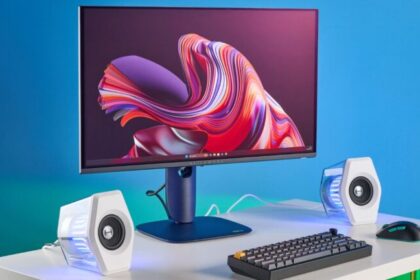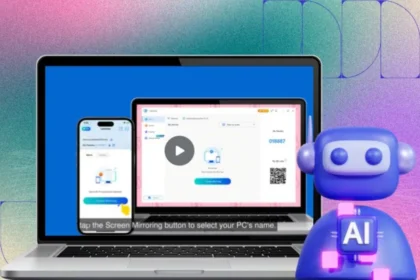\n
On August 23, 2023, international cyber security company Irdeto announced that Denuvo video game protection and digital anti-theft software is now available for Nintendo Switch. Now, Switch game developers and publishers could access Denovo’s tools on Nintendo’s developer portal and use them to prevent their video games from running on PC emulators.
Irdato announced in the relevant news conference:
By blocking unauthorized emulation on PC, companies can increase their revenue during game launch, which is the most important period for generating revenue. Protecting against Nintendo Switch emulators will ensure that anyone who wants to play the console’s games must have a legitimate version. buy it
This doesn’t sound too bad for video game companies and legal gaming enthusiasts. The problem is that Denovo has already been accused of causing performance problems in some popular games, such as Sonic Mania and Tekken 7, and Japanese developer and publisher Capcom even tried to improve the performance of Devil May Cry V and Resident Evil 2 Remake. The computer had to disable this software.
Related posts:
What exactly is Denovo?
Denuvo was developed in 2014 by the Austrian software company Denuvo Software Solutions GmbH, and the company itself was acquired by the software giant Irdeto in 2018. Although often referred to in the media as a digital rights management (DRM) solution (this software requires a DRM system to provide optimal performance), Denovo is actually anti-tamper software.
DRM technologies are developed to control and manage access to digital content, protect the intellectual property rights of content creators and publishers by preventing unauthorized copying, distribution and sharing of digital products. When you buy software that comes with an activation key or requires online authentication or an Internet connection to run, you’re dealing with DRM. Video game developers use this and other DRM strategies to ensure that only people who buy their games legally can play them.
Anti-tampering software, on the other hand, tries to prevent tampering by making their code more difficult to reverse engineer. Denovo uses obfuscation techniques to hide the logic and structure of the game’s code, but also if someone tries to find a bug in the DRM, the software will notice and take countermeasures to stop it.
Although the manufacturer has not disclosed its methods, one way to prevent unauthorized debugging attempts in Denovo is to run code paths that are intended to cause errors in the debugging tools or result in incorrect or irrelevant results. In addition, Denovo encrypts the original game files so that if hackers succeed in extracting them, they cannot access them without a proper decryption mechanism (available only to the game developer).
Other sources indicate that Denovo makes games run on virtual machines, which are controlled and isolated environments. This creates a barrier between the game code and the user’s computer hardware while the game is running. This method is called virtualization, but it is more related to Denovo’s anti-cheat solution than its anti-tampering solution.
Related posts:
Does Denovo affect game performance?
According to Irdto, Denovo will be integrated with the Build Games toolchain. In game development, a “build” refers to a compiled version of a game’s code, assets, and resources ready for release or testing, and a “toolchain” is a set of software tools required to build a game. This means that Denovo’s anti-theft mechanisms are applied to the game’s code during development, adding layers of complexity that can make the code harder to run, process, and optimize.
As a result, Denovo’s protection mechanisms can increase processor workload and lead to frame rate drops, increased load times, or other performance-related issues. Denovo can also cause more memory usage as the game has to allocate resources both for itself and for anti-theft mechanisms. In addition, the deep integration of anti-theft mechanisms into game codes may lead to compatibility issues with some hardware configurations.
Does Denovo cause a sharp drop in game performance?
If Denovo is such a problem, and if some reputable studios have removed it from their games, why did Nintendo decide to add anti-piracy mechanisms for this software to Switch games? The thing you should keep in mind is that game development is a complex process with many elements, and each of these elements can cause problems in the game’s performance. Therefore, Denovo is not the only reason for the poor technical performance of some games.
You should also pay attention to the game engine, optimization of game codes and graphics, hardware and driver compatibility, etc. For example, like personal computers, Nintendo Switch faces certain limitations in terms of processor, graphics chip and memory. If a game’s needs are beyond what the Switch can handle, or if the game isn’t properly optimized for the console, it may lead to performance issues regardless of Denovo. Background applications, old firmware, inappropriate settings, etc. can also affect the performance of the game on the Switch.
Because of this, gamers shouldn’t automatically blame Denvo if games don’t perform as expected. Although in some cases, removing Denovo improves game performance, there are also cases where removing Denovo does not make any difference in game performance.
Denovo’s chief operating officer of video games, Steve Huin, denied allegations earlier this year that Denovo had a negative impact on gaming performance. As expected, Huynh said Airto always checks that Denovo’s anti-tampering protection system doesn’t have a noticeable impact on game performance. Huynh also said that people who analyze the performance of games with and without Denovo on forums, YouTube channels, etc., often overlook other changes made to games between the release date and the date Denovo is removed from them (such as fixing bugs or rolling out updates). they do.
Huynh also mentioned that he is aware of Denovo’s bad reputation and that there is a sense of mistrust among some gamers about the software. In an interview with the ArsTechnica website, Huynh said:
In the community of people who play games illegally, we are seen as the devil because we help DRM exist and ensure that developers make money from games.
Regardless of Denovo’s apparent and real effects, this product has been used in many AAA games without any problems and will now be the heart of the Nintendo Switch emulation protection project.
\n
\n
RCO NEWS

















